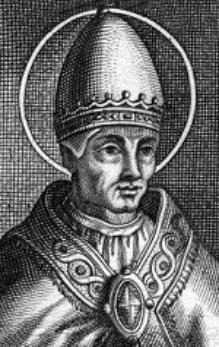492 Death of Pope Felix II (aka Felix III)
The great shame of the Christian Church after its legalization in the 4th century and its subsequent conversion of the Roman Empire was its tendency to acrimony and schism in debates about the nature of Christ. Some of these struggles were necessary: the notion of Arius that Christ was a subordinate creation of God and the assertions of the Trinitarians that the Father, Son and Holy Spirit were coequal and coeternal could not live together harmoniously in the same Church. (The fact that the barbarian conquerors were usually Arian Christians made this an even more vexed question.)
Bu the later quarrels over the balance of human and divine natures in Christ and whether Christ had a single energy or a single will led to a blizzard of contending schools — Nestorians, Chalcedonians, Eutychians, Monophysites, Miaphysites, Mononergists, Monotheletists, not to mention Monarchianists, Modalists of various stripes, Sabellians, and Adoptionists – that were not always edifying.
Enter then Pope Felix II (or III if you count an earlier antipope in your calculations). His uncompromising nature led to excommunications by the bucketful and a nasty schism. On his accession in 483 he was faced with a Monophysite patriarch in Alexandria (Middle Eastern Christians tended toward the belief that Christ’s divine nature pretty much eclipsed his human nature) and a well-meaning attempt by the Emperor Zeno to bridge the Monophysite/Chalcedonian gap with a document known as the Henoticon. Felix’s response was to denounce the emperor and the Alexandrian bishop and excommunicate Acacius the Patriarch of Constantinople. This provoked a schism between Rome and Constantinople that lasted for decades.
Felix was equally rigid in his treatment of North African Christians who had submitted to an Arian baptism after persecution by the Vandals. He announced that they could be reconciled to the Catholic communion only on their deathbed.
For some reason he was deemed to be a saint. He is not to be confused with Felix of Nola, the patron saint of spiders.
